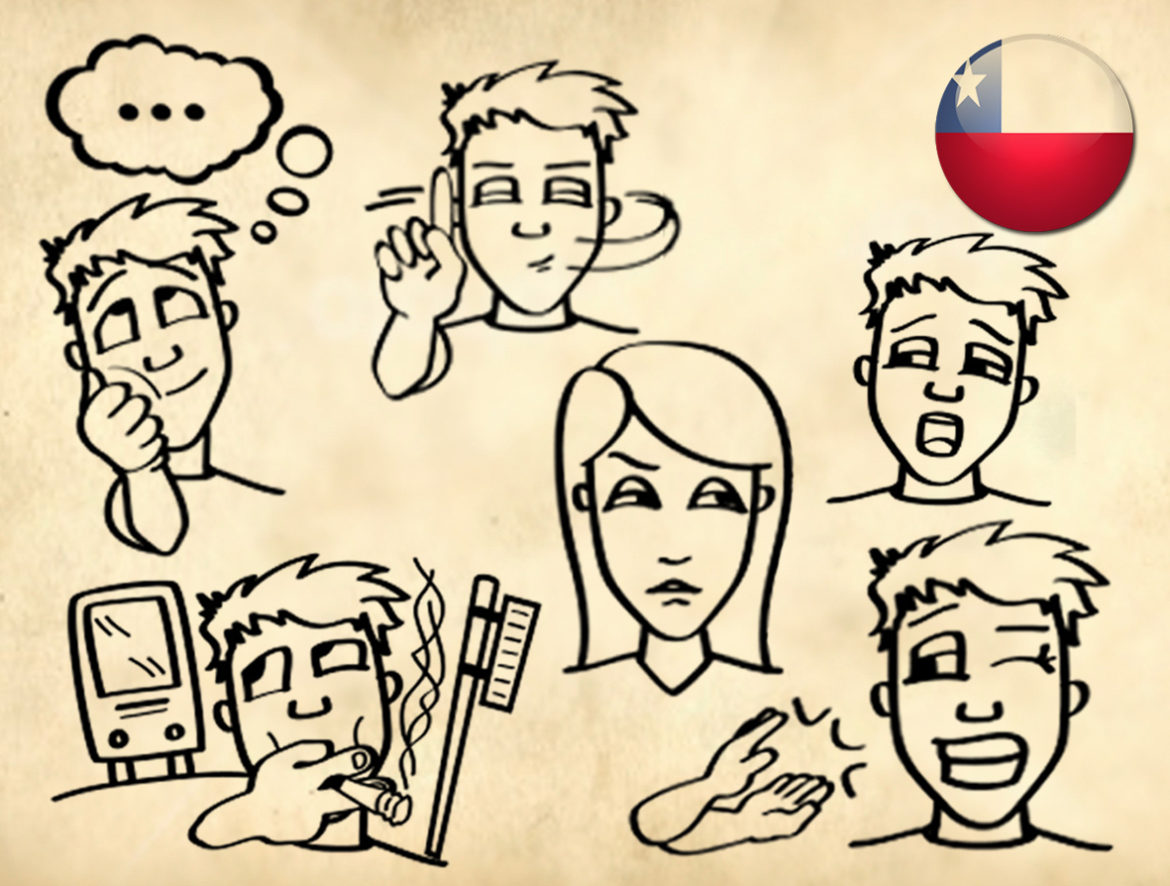You’ve mastered the art of Spanish, you may even be able to talk argot with an Argentine, but have you braved the depths of Chilean slang? Even the bravest of Spanish students will find the wealth of new words overwhelming, so here’s a quick fire guide to talking like a local whether you’re visiting the bustling capital of Santiago or sleepy villages like San Pedro de Atacama.
Po: Added at the end of almost every Chilean sentence, “po” is used as a filler and to accentuate the speaker’s message.
- “Si, po.”
- “No, po.”
- “Three bags full, po.”
Huevón: friend OR stranger OR jerk/fool. A very common filler at the end of sentences. Also spelled and pronounced weón and güeón. Common expressions using huevón…
- Huevón aperrado: someone who demonstrates resilience; accompanies a friend through a difficult situation
- Huevón tela: someone friendly
- Hacerse el huevón: to pretend to be naive after doing or seeing something wrong
¿Cachai?: Do you understand? Like the verb “entender” used in other Spanish speaking countries. As a tourist, you may hear this after asking for directions. Chileans use the “ai” verb conjugation, Italian-izing their dialect and creating a fun sound. For example…
- Instead of the standard, ¿Como estás? Or, in English, How are you? A Chilean would say ¿Como estai?
Pololo/polola: boyfriend/girlfriend. Everybody either has or is looking for a pololo/polola and you will probably be asked about yours.
- ¿Estás pololeando? Are you dating anyone?
Fome: boring, lame. Especially lame when it is describing a carrete (party).
- ¡Qué fome el carrete! What a boring party!
Jote: a player; a guy who talks to or dates many women with no intentions of commitment
- Este weón es un jote. This guy is a player.
Cuico/cuica: someone from the upper-class
- Starbucks es muy cuico. Starbucks is for wealthy people.
Caña: hangover
- Esta mañana, levante con una caña, woen! This morning I woke up with a hangover, man!
Bacán: awesome
- ¡Qué bacán, po!
Taco: traffic jam. Sadly unrelated to tacos, although you might fancy one if you are stuck in a long queue.
- ¿Viste el taco esta tarde? Did you see the traffic jam this afternoon?
Al tiro: immediately
- Ven acá al tiro. Come here right now.
Luca: 1000 Chilean pesos
- El mote con huesillos sale dos lucas. The mote con huesillos costs $2,000 pesos.
Once you’ve mastered the art of speaking slang in Chile, why not use your skills on one of our experiences? From artisan craft workshops in Valparaiso to horseback rides overlooking Casablanca Valley.
